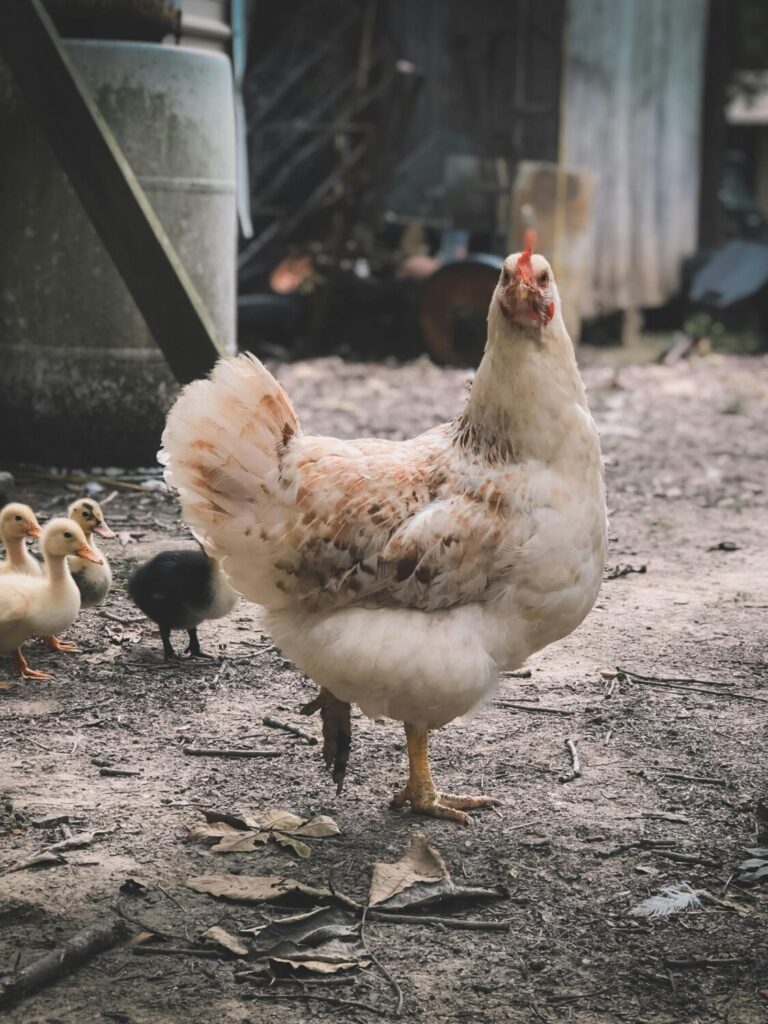Deciphering what your food label is saying to you: Chicken:
Eating healthy can be tough! You make a decision to get rid of steak, ribs, and all the fatty protein in your diet and start eating chicken and fish, lean proteins! Then you come by an article like this one and realize, it’s time to take it up a few notches. Let’s decipher what the labels on our chicken really mean.
Natural
“My chicken label says it’s natural! That must mean something!” I hear this often, lets decipher: Anything in the meat and poultry aisle can be called natural. No artificial colors, flavors, or other ingredients, no preservatives and “minimal processing”, but not necessarily all will fall into the category. The USDA has forced marketers to at least add which of the listed were not added (hopefully all!)

Free Range (*this only applies to poultry!)
This label is usually misunderstood. Free range only means that the chicken had a “chance” to run around. It doesn’t necessarily mean it did. To use this label, the Government requires that outdoor access is available for some assigned period of time (that’s right, it can range from 5 minutes to an hour). They may not be in cages but still raised in a crammed area. Deciphered: Whatever you ingest, you want it to have been raised healthy! You are what you eat. Unless you personally know the farmer that raises the chickens, this label can vary in its significance and usually it holds little meaning. (*Free Range is different than pastured)
100% Vegetarian Diet
This term isn’t regulated by the U.S. Department of Agriculture (USDA). It is generally meant to suggest that an animal is fed a healthier diet and is raised without being fed animal byproducts or dairy products. According to the USDA, manufacturers that use this term on package labels must be able to provide evidence to support the claim. Deciphered: Their feed didn’t contain animal byproducts, which can mean ground up animal parts and feces.
Antibiotic-free
Under U.S. Department of Agriculture (USDA) regulations, meat and poultry products can be labeled as “no antibiotics added” if documentation is provided showing that the animals were raised without antibiotics. Similar allowable terms according to the USDA are “no antibiotics ever,” “no added antibiotics” and “raised without the use of antibiotics.” However, the term “antibiotic-free” isn’t USDA approved.
If animals are given antibiotics to prevent or treat disease, an antibiotic-withdrawal period — usually several days — is generally required before animals can be slaughtered so that there are no antibiotic residues in meat or poultry. Deciphered: Still not much but the less antibiotics given, usually means the stronger and, possibly, lived under better conditions.
No added hormones
Claims of “no hormones added” can’t be used on labels for these products unless the label also states, “Federal regulations prohibit the use of hormones.” Deciphered: This label is worthless unless you are buying beef.
 Pastured or Pasture-Raised
Pastured or Pasture-Raised
Regulations are part of the National Organic Program of the U.S. Department of Agriculture (USDA). To use the label “pastured”, manufactures must provide year-round access to the outdoors for all ruminant animals, providing them with pasture throughout the grazing season in their area and ensuring that the animals get at least 30 percent of their dry-feed intake from pasture grazing over the course of grazing season. Deciphered: All those Looney tunes cartoons where you see chickens in the background, roaming free, it’s kind of like that. It’s expensive but this is a good label.
Organic
To use this label, the farm must meet USDA standards and be officially certified through the USDA. Deciphered: 100% organic feed, no animal byproducts, no hormones, no antibiotics, Must have outdoor access, no irradiation, no pesticides (for the feed), no synthetic fertilizers, no sewage sludge, no synthetic pesticides, and no GMO. Now, that chicken sounds delicious!
None of the terms listed

It’s important to know and understand what is going into your body. Just because it says chicken, does not mean it’s healthy. You are what you eat and if you’re eating chicken that have never spread their wings because it stuck in a cages, being treated with antibiotics and pesticides are consistently being sprayed to get rid of the smaller critters on the farm (lice, fleas, etc.). It’s understandable why most people are taking between 3-15 pills a day. Organic may be expensive but it is leaps and bounds above the rest (pastured is actually considered better, but with that, also more expensive).

Final word: Just the other day I was having a conversation with a friend. My friend said to me “you’re a personal trainer, performance specialist, you work out like 5xs a day (it’s actually 5xs a week) why are you on a diet?!”. My explanation was like this. Most people’s goals are to do what on a diet… lose weight… what is mine?.. My friend replied, “Lose weight?” I laughed; no it’s about optimal performance, not just in an athletic sense but in the ability to live life. Not needing coffee, energy drinks, 5hours energies, and being able to be active for 16hours plus a day. Don’t just go on a diet to lose weight, make a lifestyle change to increase your health, your performance, your energy, your confidence, your life!!
-Kirill Vaks
BA, CSCS, ACSM-cpt, NFPT-sns
Performance and Fitness specialist
Take action… Now!
Training Aspects Personal Training and Sports Performance:
Training Aspects’ personal trainers and sports performance coaches want you to accomplish your goals. You, as the personal training client, are a reflection of our personal training and group training methods! We are here to help you accomplish all of your personal training goals! Our main training focus are people looking to increase performance, lose weight , lose body fat and increase lean muscle. Whether you live in Cherry Hill, Haddonfield, Marlton, or any of the other surrounding areas we are here to help you Move, Look and feel as you’ve always desired…
Visit us:
Inside of the Flyers Training Center
601 Laurel Oak Rd.
Voorhees, NJ 08043

 Pastured or Pasture-Raised
Pastured or Pasture-Raised

